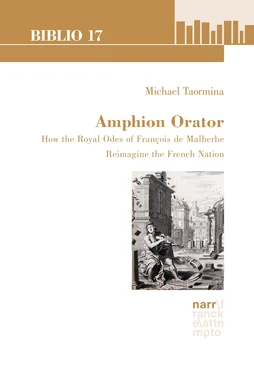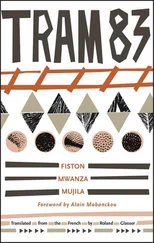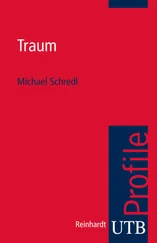Michael Taormina - Amphion Orator
Здесь есть возможность читать онлайн «Michael Taormina - Amphion Orator» — ознакомительный отрывок электронной книги совершенно бесплатно, а после прочтения отрывка купить полную версию. В некоторых случаях можно слушать аудио, скачать через торрент в формате fb2 и присутствует краткое содержание. Жанр: unrecognised, на английском языке. Описание произведения, (предисловие) а так же отзывы посетителей доступны на портале библиотеки ЛибКат.
- Название:Amphion Orator
- Автор:
- Жанр:
- Год:неизвестен
- ISBN:нет данных
- Рейтинг книги:4 / 5. Голосов: 1
-
Избранное:Добавить в избранное
- Отзывы:
-
Ваша оценка:
- 80
- 1
- 2
- 3
- 4
- 5
Amphion Orator: краткое содержание, описание и аннотация
Предлагаем к чтению аннотацию, описание, краткое содержание или предисловие (зависит от того, что написал сам автор книги «Amphion Orator»). Если вы не нашли необходимую информацию о книге — напишите в комментариях, мы постараемся отыскать её.
Amphion Orator — читать онлайн ознакомительный отрывок
Ниже представлен текст книги, разбитый по страницам. Система сохранения места последней прочитанной страницы, позволяет с удобством читать онлайн бесплатно книгу «Amphion Orator», без необходимости каждый раз заново искать на чём Вы остановились. Поставьте закладку, и сможете в любой момент перейти на страницу, на которой закончили чтение.
Интервал:
Закладка:
Coexisting with the divine powers of the king established by Christian theology, virtuevirtue is a sort of classical substratum with its own political, metaphysical, and moral implications. Although Malherbe is a poet and not a scholastic philosopher, one cannot help but notice that the royal odes add three key predicates to the portraitethosportrait of the “monarque magnanime” [magnanimous monarch] (“Ode au feu roi sur l’heureux succès du voyage de Sedan,” v. 181). In addition to portraying Henri as possessing great and complete virtuevirtue, and having the right concern with honor ( NE 4.3 1123a35, 1123b20, 1123b30), the royal odes characterize this moral quality as superlative, quasi-divine, and heroic. The following example will serve to illustrate: “Qui ne confesse qu’Hercule / Fut moins Hercule que toi? [Who does not confess that HerculesHercules / Was less HerculesHercules than you] (“Ode au feu roi sur l’heureux succès du voyage de Sedan,” vv. 99-100). Henri’s tireless efforts to secure peace, justicevirtuejustice, and prosperity for the kingdom recall the labors of HerculesHercules, but this comparisoncomparison says that Henri is greater than the greatest Greek hero—a form of hyperbole that underscores the superlative nature of the object (QuintilianQuintilian 8.4.4-9; 8.6.76). HerculesHercules, moreover, is a demi-god. All three predicates are therefore implied by the comparisoncomparison. If there were any doubt that they apply to the monarch’s natural powers, later in the same ode, Malherbe depicts Henri’s indomitability with a telling conceitconceit: the reason fortune yields so readily to your acts of valor, he says, is that she is “amoureuse / De ta vertu généreuse” [in love / With your magnanimous virtuevirtue] (“Ode au feu roi sur l’heureux succès du voyage de Sedan,” vv. 115-116). So obedient to Henri’s will does fortune appear, that Henri’s great virtuevirtue must have seduced her. The phrase “ta vertu généreuse” [your magnanimous virtuevirtue] points to a human power, not a divine one. It just is so great that it reaches up into the realm of obscure forces usually beyond human control.
If the virtuevirtue of magnanimitymagnanimity supports the heroic idealization of the Bourbons, the three new predicates joined to it reveal an unsuspected logical consistency and political ground underlying the royal odes. Granted, these magnificent poems neither speculate nor meditate directly on abstract political questions, as Jean BodinBodin, Jean does, for instance, in Les Six Livres de la République . However, their praise of virtuevirtue echoes in thought-provoking ways Aristotelian political theory, which Malherbe likely absorbed indirectly from his reading.8 Let us examine what sorts of inferences may be drawn from the addition of the superlative, the quasi-divine, and the heroic as predicates of Malherbian magnanimitymagnanimity.
1. Superlative virtue virtue . This notion as applied to the Bourbons is not simply hyperbole. It is the defining quality of the “one best man” (AristotleAristotle, Politics AristotlePolitics 3.10 1281a15) whose claim to political authority is so overwhelming that it transforms all other constitutional polities into a monarchypolitymonarchy. “If one man be a better man than all the other good men who belong to the civic body, this one man should be sovereign” ( Politics AristotlePolitics 3.13 1283b20). According to AristotleAristotle, monarchypolitymonarchy is the form of rule which most completely satisfies the demands of distributive justicevirtuejustice in a political association, since it does not contradict itself in the partial way that oligarchy and democracy do ( Politics AristotlePolitics 3.9 1281a1-5). It also best promotes the common interestcommonwealthcommon interest ( Politics AristotlePolitics 3.12 1282b15-25) and the good life of the state, which is based on justicevirtuejustice and virtuevirtue ( Politics AristotlePolitics 1.2 1253a30-1253b; 3.9 1281a1). Such philosophical claims lurk under the surface of Malherbe’s royal odes when they attribute superlative virtuevirtue to Henri IV or Louis XIII (the claim applied to Marie de Médicis, “one flesh” with her deceased husband, constitutes a special case that is examined in Part II). They invisibly support the favorite argument of the earliest odes in the sequence that even if Henri were not the legitimate successor, he would deserve to rule because of his superlative virtuevirtue. In short, Henri’s demonstrated virtuevirtue makes him the best man for the job, and his leadership most promises to reestablish justicevirtuejustice and to bring about the goodcommonwealththe good life for the whole nationnation.
But what does it mean that the megalopsychos magnanimitymegalopsychos is the “one best man”? First, Henri is not just a man of great virtuevirtue, but of the greatest virtuevirtue. The logic of magnanimitymagnanimity underlying the royal odes demands that the kingdom’s other great-souled men—whom Malherbe calls by various names, “nos rebelles couragevirtuecourages” [our rebellious braves] and “ces âmes relevées” [these towering souls] (“À la reine sur sa bienvenue en France,” vv. 9 & 206)—yield to the great-souled man whose virtuevirtue is superlative. Because every megalopsychos magnanimitymegalopsychos has the right concern with honor, correctly estimates his own greatness, and deserves whatever recognition he may receive, he is less likely to be deluded about the true worth of others. In his own case, which is the most difficult, he makes the right judgment in the right way. So, the recognition by one great soulmagnanimitygreat soul of another great soul is itself a sign of magnanimitymagnanimity, that is, the capacity to make correct judgments in the right way. Where the megalopsychos magnanimitymegalopsychos is concerned, “it takes one to know one.” Although the other great-souled men of the political community have some claim to sovereignty on the basis of their outstanding virtuevirtue, the superlative virtuevirtue of the one best man requires, on the very same ground of political justicevirtuejustice, that they yield to him and offer “a willing obedience” ( Politics AristotlePolitics 3.13 1284b30-35). At the same time, because they are not without virtuevirtue, and it is great virtuevirtue at that, they cannot be said to be completely without that quality which is “peculiar to the ruler” ( Politics AristotlePolitics 3.4 1277b25)—only, perhaps, that they possess it to a lesser degree. The logic of magnanimitymagnanimity therefore implies not only that the kingdom’s other great-souled men understand true opinion and are able to make judgements in the right way, but also that they, too, possess phronēsis phronēsis ( Politics AristotlePolitics 3.4 1277b25-30), “the chief intellectual virtuevirtue apart from wisdom and the condition for the possession of all the moral virtuevirtues” (Newell 165).
Second, the politypolity thus envisioned by the royal odes differs from AristotleAristotle’s. Normally, the appearance of the one best man of superlative virtuevirtue, with his justified claim to absolute political authority, “leads to the destruction of the city understood as a community of diverse contributions and interests” (Newell 162). In the political association where “a single person is sovereign on every issue, with the same sort of power that a tribe or a polis exercises over its public concerns,” the civic community of competing claims to political authority gives way to “paternal rule over a household. Just as paternal rule is kingship over a family, so conversely this type of kingship [i.e. absolute] may be regarded as paternal rule over a polis, or a tribe, or a collection of tribes” ( Politics AristotlePolitics 1285b30). The politypolity of the royal odes, however, is much closer to BodinBodin, Jean’s conception. In Les Six Livres de la République , the kingdom’s civic community, though deprived of sovereignty, is nonetheless identified with the civic body of the monarch. According to the doctrine of the king’s two bodies, the state “did not exist apart from its members, nor was the ‘state’ some superior being per se beyond its head and members” (KantorowiczKantorowicz, Ernst H. 270). The monarch is the head of the body politicbody politic, comprised of various members. By the late thirteenth century, the term patria nationpatria was “synonymous with the whole kingdom or body politicbody politic over which the ‘Crown’ or its bearer ruled” (KantorowiczKantorowicz, Ernst H. 251). What the royal odes propose, therefore, is the birth of a new nationnation, that is, a new body politicbody politic, headed by the one best man. The appeal to virtuevirtue, and to magnanimitymagnanimity in particular, implies that the relinquishment of any claim to political authority by great-souled subjects need not be subjugation and abasement. The logic of magnanimitymagnanimity redirects all competing claims of political authority toward emulation pro rege et patria pro rege et patria , that is, in the service of king and country. By serving the monarch, one serves the nationnation—because the monarch as head of the body politicbody politic serves the common interestcommonwealthcommon interest of the body politicbody politic. But, argues Malherbe, those who claim to serve the nationnation against the monarch are dishonest or deluded: “Nous voyons les esprits nés à la tyrannie, / Ennuyés de couver leur cruelle manie, / Tourner tous leurs conseils à notre affliction” [We see minds born for tyranny, / Weary of plotting their cruel insanity, / Devoting their counsels to our suffering] (“Prière pour le Roi allant en Limousin,” vv. 103-105). They are serving partisan interests, as evidenced by the death and destruction they inflicted on the commonwealthcommonwealth during the Wars of Religion.
Читать дальшеИнтервал:
Закладка:
Похожие книги на «Amphion Orator»
Представляем Вашему вниманию похожие книги на «Amphion Orator» списком для выбора. Мы отобрали схожую по названию и смыслу литературу в надежде предоставить читателям больше вариантов отыскать новые, интересные, ещё непрочитанные произведения.
Обсуждение, отзывы о книге «Amphion Orator» и просто собственные мнения читателей. Оставьте ваши комментарии, напишите, что Вы думаете о произведении, его смысле или главных героях. Укажите что конкретно понравилось, а что нет, и почему Вы так считаете.












